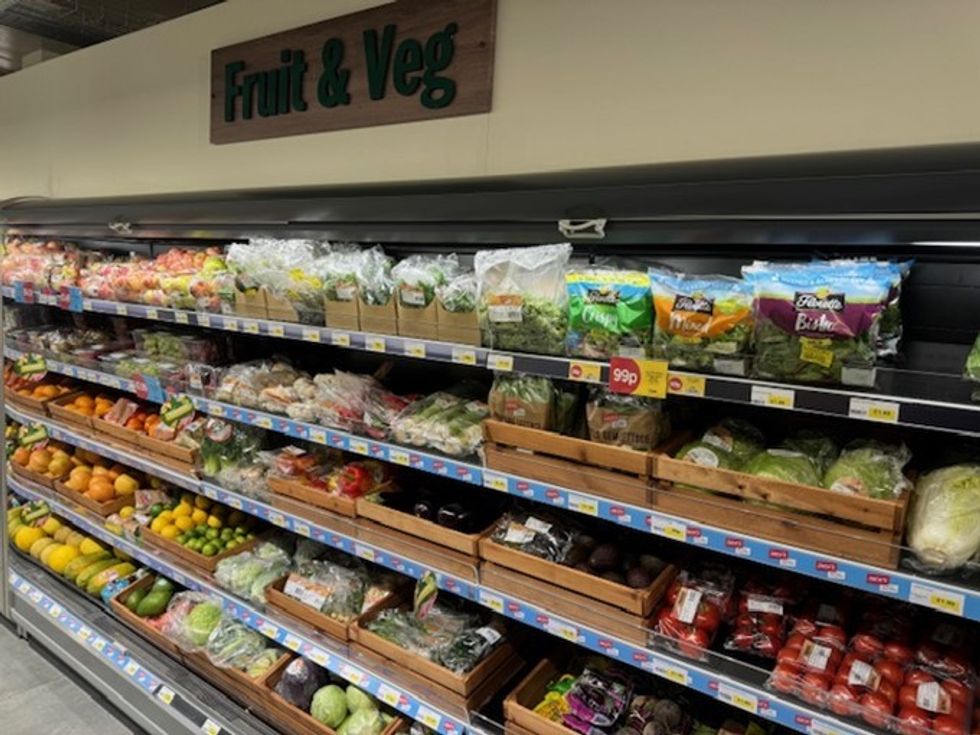From mini-cab driver to award-winning retailer, Amarjit Singh Rakhra's journey epitomises the entrepreneurial spirit that defines Britain's independent retail sector. But what sets him apart isn't just his business acumen – it's his unwavering commitment to community service, deeply rooted in his Sikh faith and values.
Rakhra, who won the Spirit of the Community Award at the 2024 Asian Trader Awards, operates eight stores across London and surrounding areas through his family business. His latest venture, the Budgens Pomeroy Street store in Peckham, opened in November 2023, exemplifies his innovative approach to community engagement.
Serving more than customers
The store's unique feature is its upstairs space – approximately 900 to 1,000 square feet dedicated entirely to community use. The facility includes modern amenities such as air conditioning, free wi-fi, desks, and comfortable seating, along with a lift and a toilet.
“I felt the need that the Afro-Caribbean origin families do not have that much support from this community, and generally, and I wanted to keep some space for them to come and work here,” Rakhra explains, describing the cramped living conditions of many local families, who live in small flats.
“They have got five, six people living in those one-bedroom, two-bedroom flats. People don't have enough space to sit and study, to sit and do work. This is a space for them to come out and have a break from siblings or somebody else and do what they need to do in peace and quiet.”
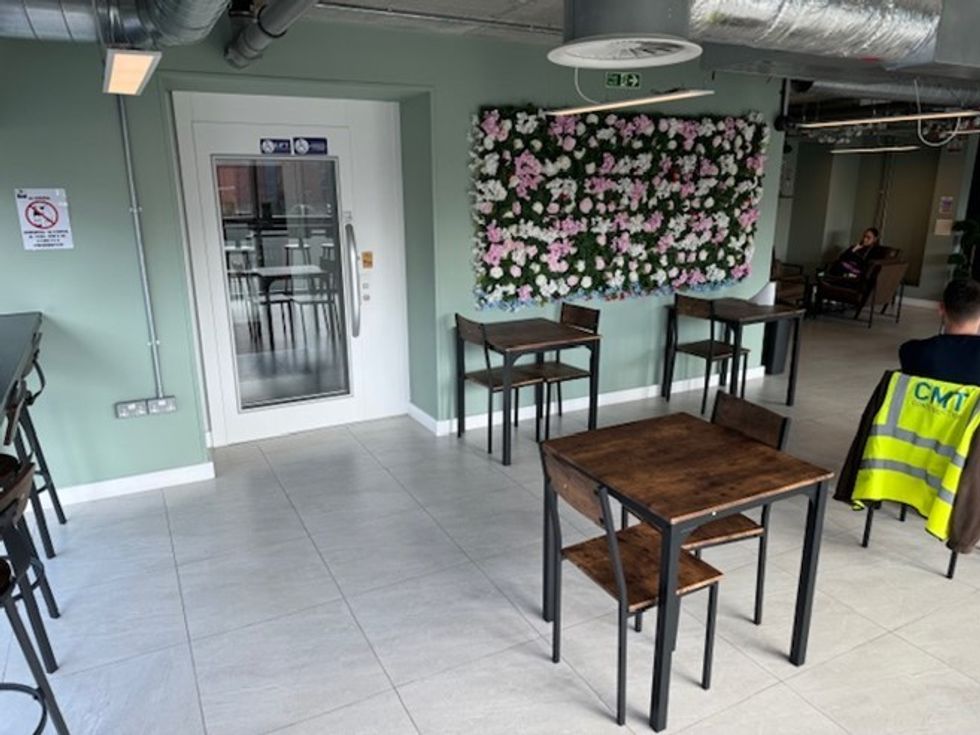
Upstairs is open to all from 7am until 5pm, operating as a community workspace, and in the evening, it transforms into a well-being centre, hosting various community activities.
“Lots of young kids come to study there,” he says. “After five o'clock, we use upstairs area again for the community, for yoga, for music classes, tutorials. So, people come and use that space till nine, ten o'clock.”
Most remarkably, Rakhra offers this facility without seeking profit, despite the costs involved.
“If you're a yoga instructor, you bring in 10 of your clients, and you charge them £10 for one hour. As a business, I'm saying you keep all £100. We don't want you to share that £100 with us, because we have got almost 3000 square feet downstairs to do our business,” he says, explaining his philosophy of community support.
“The reason we are doing all of that for the local community is that my needs are financially a little less now, because my kids are educated. They are professionals, my daughter is a dentist, and my son is a pharmacist. So, we thought this will be the right time to do something for the community.”
Humble beginnings
Born and brought up in Delhi, Rakhra came to the UK in 1985, starting as a mini-cab driver before finding his feet in retail. Together with his wife, Pritpal, he opened his first store in Covent Garden on 4 August 1992, a date etched in his memory not only for business but for personal reasons too – his daughter was just seven days old!
Pritpal, born and raised in the UK, was a banker until she gave up her job after their son’s birth in 1990. The couple’s strong partnership in business has helped shape their success. “She is equal partner in the business,” Rakhra says.
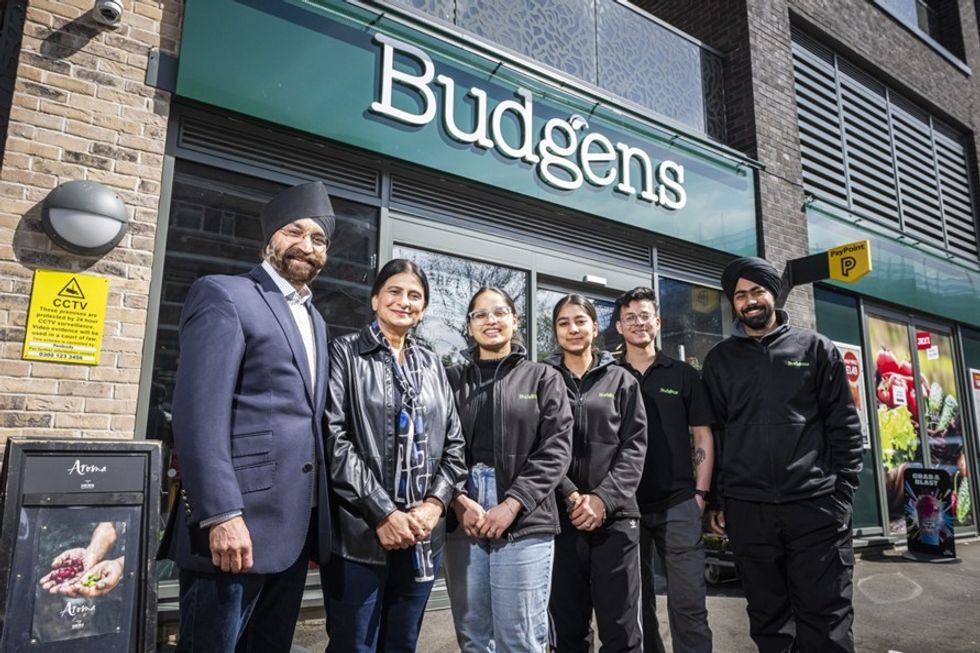
Their first store in Covent Garden was a stepping stone, and over the years, the portfolio expanded to ten stores at its peak. While some leases were not renewed, they now manage eight stores, six in London, and one each in Rickmansworth and Hemel Hempstead, employing over 60 people.
The decision to operate multiple stores was driven by Rakhra’s desire for growth and employment generation. “The best way to help the community is by promoting employment as well,” he says. His Sikh faith plays a central role in this ideology. “We believe in sharing. But if we are only sharing food, like we do from our Gurdwaras, after four hours, you're hungry again. The best thing is to provide employment, so people can buy their own food.”
Supporting local producers
A firm advocate for local businesses, Rakhra prioritises working with small, family-run suppliers. He sees this as a crucial alliance between independent retailers and local producers.
“If they go to the big supermarkets, they squeeze their margins to that limit, they can't survive,” he explains. “With us, they can supply us small quantities, and they don't need to store big, they don't need to have big storage.”
This mutually beneficial relationship is central to his business ethos: “We should tell all small retailers to support the small producers and small suppliers. I think this is a must have, because if we are looking for help, similarly, they need some help as well.”
This support for local producers is evident in his supplier selection process. “The first thing I look for is if it is a family business,” he says. “If it is a family business, a small husband and wife team, I'm 50 per cent inclined towards them anyway.”
His stores stock specialist products, ranging from juices to nuggets to chocolates, from small-scale suppliers.
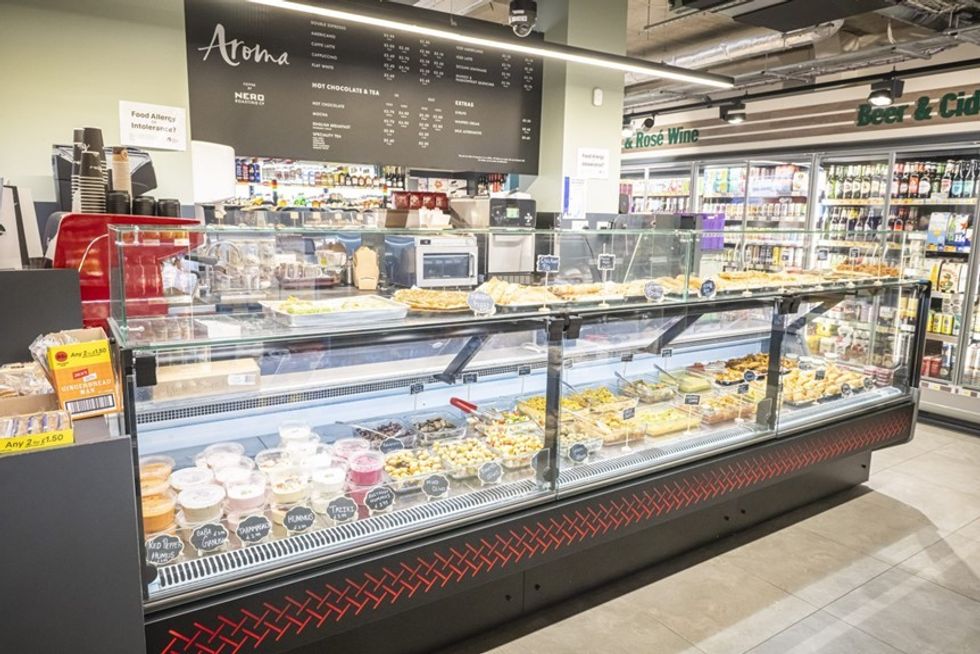
“The business is not as great as it used to be because of the competition from the big boys, Tesco, Sainsbury's, they are coming into the local community now, opening up small stores. They are making our life very difficult,” he admits, but remains optimistic about overcoming the challenge.
“We have to come up with different ideas,” he says. “And we have survived so far, and we will carry on fighting our grounds.”
He believes that initiatives like his could help generate customer loyalty across the sector. “If other retailers join in with the same mindset, we can create that. They should support small businesses in the local communities rather than big businesses.”
Navigating economic pressures
Financial struggles have also led to a rise in shoplifting, which blights stores across the country. “Shoplifting is a big deal right now. We are suffering in our stores with the shoplifting a lot,” he says
While some incidents may be examples of organised crime, he believes it often stems from financial hardship. “If you're in a housing estate, the social security money hasn't gone up as much as the prices have gone up. So, when you're short of cash, of course, that brings the worst out of us,” he notes. “People are feeling that.”
The economic pressure is also affecting consumer behaviour in unexpected ways. At his Organic Village Market store in Dulwich, south London, which houses a refill station, Rakhra has noticed a shift in customer priorities.
“When we started the refill station, it was doing very well. People are looking for cheaper options now. People are not really as much as bothered as they were bothered three, four years ago, about the plastic use,” he explains.
The demand for refill products has declined by 15-20 per cent, as customers prioritise value for money over environmental concerns. “Right now, people are looking for anything and everything cheaper, value for money, that's what they're looking for,” he notes.
Despite these challenges, Rakhra maintains his commitment to community service, drawing inspiration from his Sikh faith.
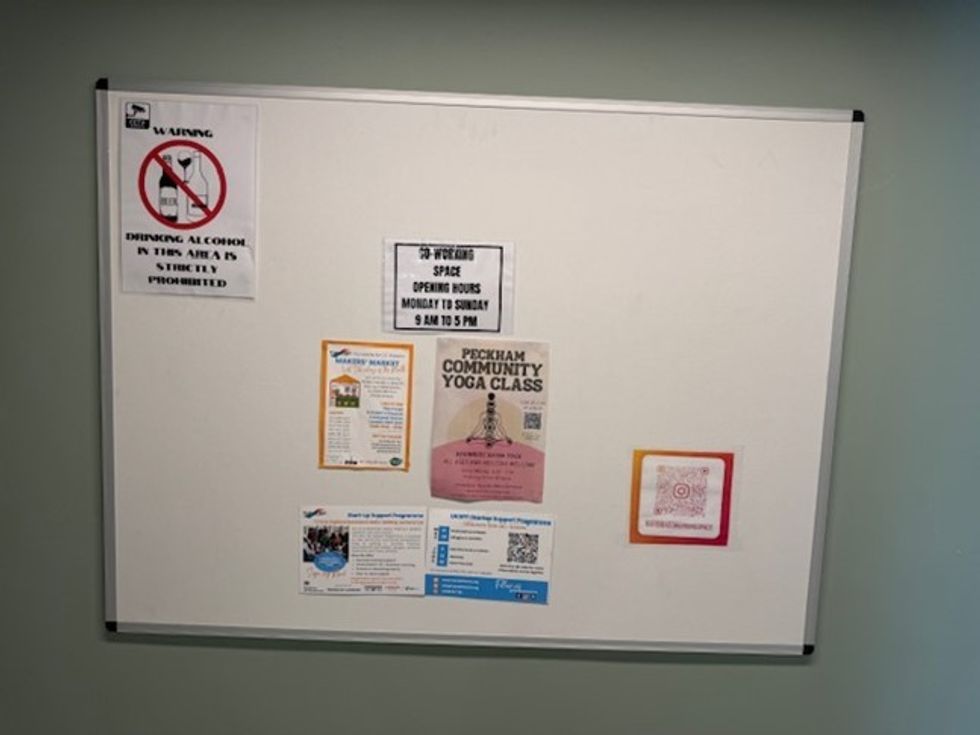
“It is in our religion, it is in our DNA, in a Sikh community that we have to help the community,” he explains. “This is what my son sees. This is what my grandson sees. My grandson is two and a half years old, and he goes to the local temple every Sunday, and he washes dishes there for one hour in the community kitchen. So, this is what we do.”
His commitment to community service extends beyond providing space. Rakhra has set himself an ambitious goal: “I will feel very happy if I can help five families to send their children to top universities, from the Budgens store in Lewisham area where the Afro Caribbean community is,” he shares.
“If I can achieve that, I will feel so much satisfied, because nobody in the history of their families has ever been to university.”
To achieve this, he and his children are helping students with university applications, personal statements, and interview skills.
“My kids have been to top universities in the country. They know the system, how it works, and they will support them with their personal statements and with their interview skills,” he explains.
Looking ahead
The immediate future for Rakhra is about resilience. “Next is just carry on doing what we are doing and just try to get through this difficult time.” He remains hopeful that an economic recovery will allow for future expansion.
“If this new government does something differently and the economy bounces back and people start feeling better, then we will look at the extension plans,” he says.
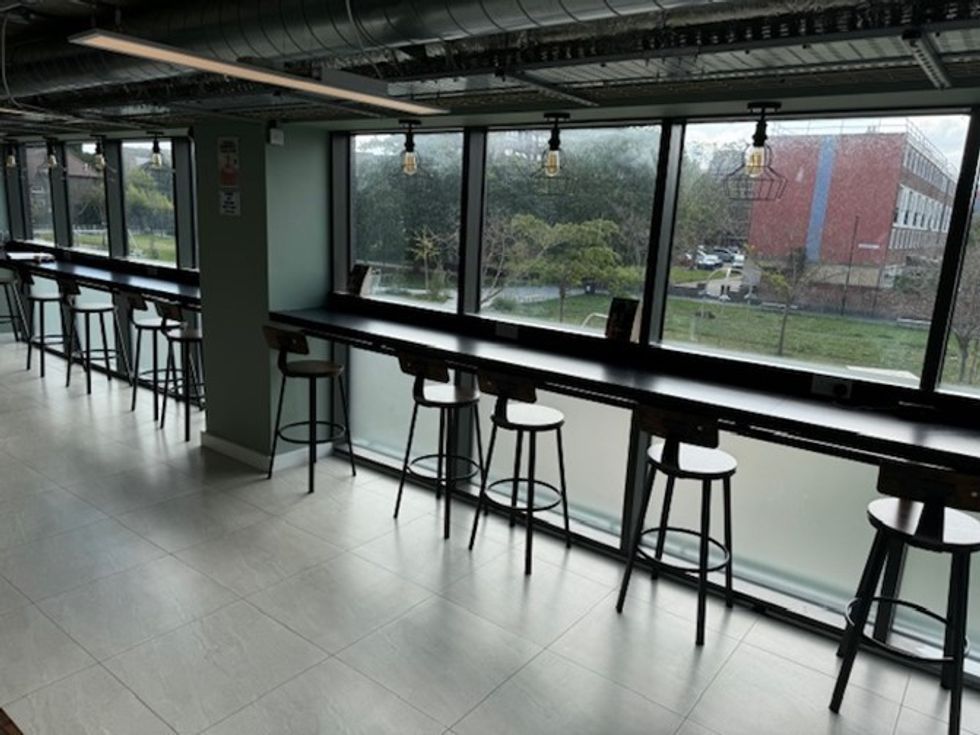
His highest achievement, he says, is not just business success, but what it has enabled him to do. “I was able to educate my two children, and they are not burden on the society now. They are self-sufficient. They can help the community. They can help society.”
For other independent retailers, his advice is simple yet profound: “Work with the community, not against the community.”






